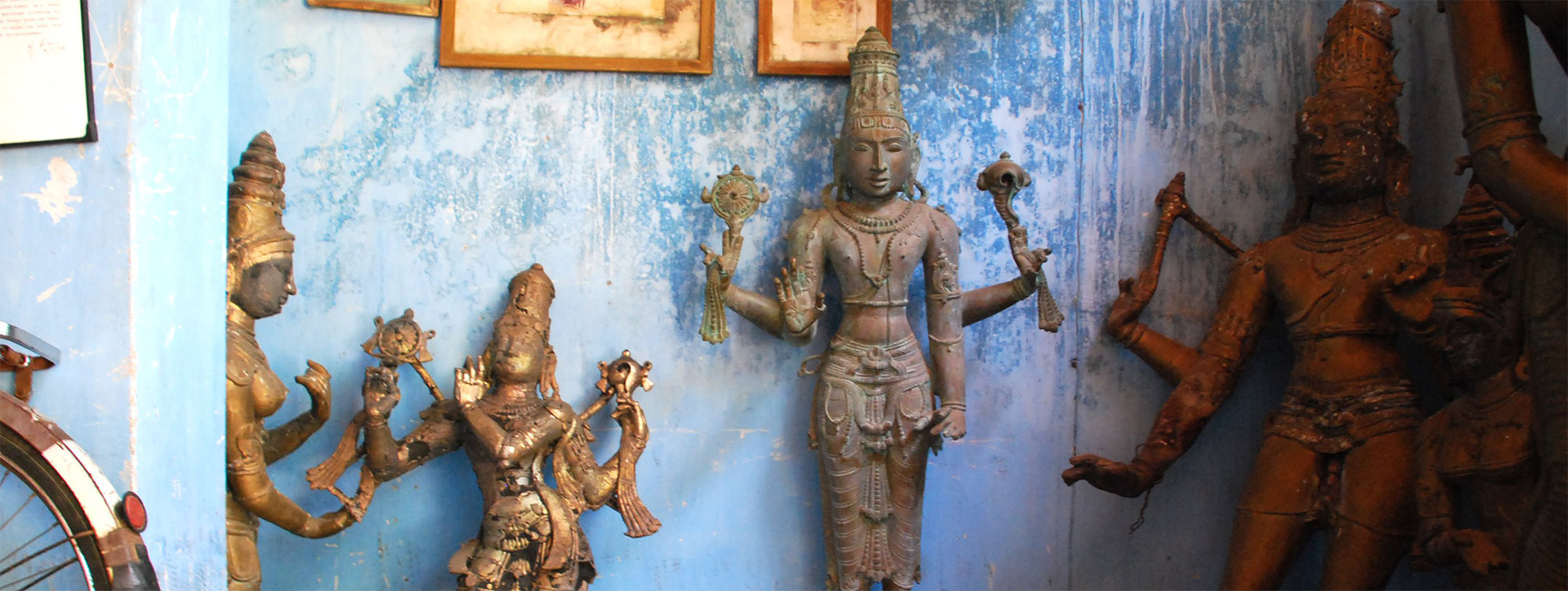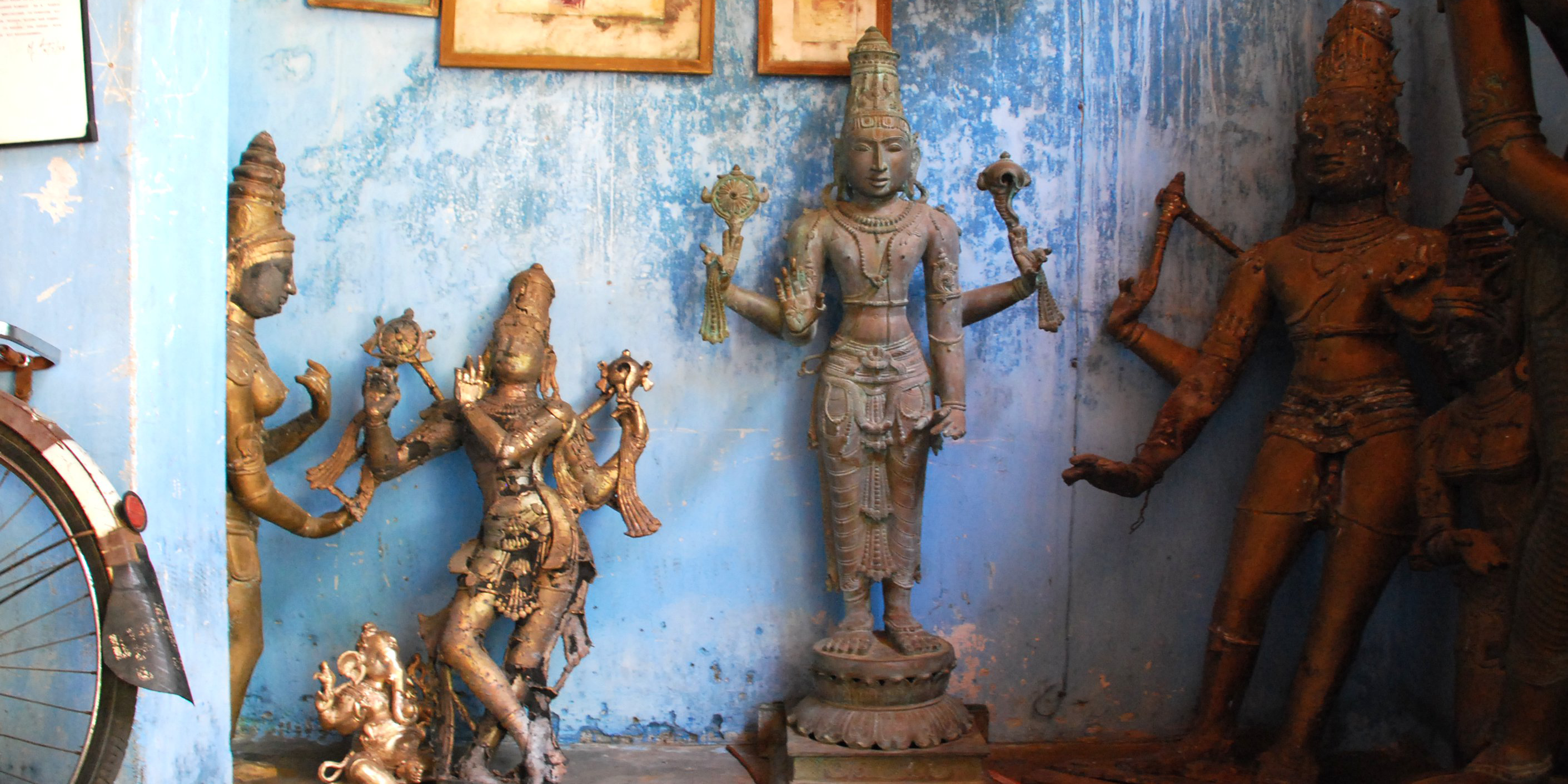The Lost Wax: Discourse, Practice, and the Ethics of Being a Good Sculptor in Swamimalai, India
Sowparnika Balaswaminathan
Anthropology
UC San Diego
In the Tamil town of Swamimalai in South India live a community of sculptors who make bronze idols of Hindu gods. This traditional craft used to be hereditarily restricted to the Vishwakarma caste who made these bronzes as processional idols for temples but the Indian government’s efforts to revive traditional crafts has caused sculptors of all castes and sculptures for all purposes (religious and decorative) to emerge. While Swamimalai sculptors are portrayed as traditional, valuable artisans by the government, a historically rooted suspicion of the Vishwakarma caste combined with contemporary surveillance of antique bronze smuggling has resulted in a societal narrative based on mistrust of the sculptor community.This dissertation project traces the hegemonic discourses from government and society that characterize bronze sculptors and bronzes as traditional and unscrupulous respectively, and charts the quotidian practices and testimonies of Swamimalai bronzecasters who respond by claiming an ethical being and practice, rejecting definitional narratives from the outside. As an ethnography that investigates how ethical personhood is used to establish an individual status while maintaining caste membership, this research questions the scholarly characterizations of South Asian caste, and debates culturally situated claims of ethical values.


